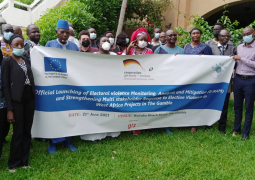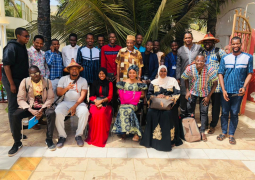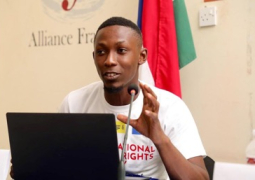
Dr. Bah made this disclosure in an interview with The Point, after the first session of the second convergence of the Social Safety Net Project held recently at the ChildFund Lodge Conference Hall in Bwiam.
He reiterated that the program, which will end around February to March 2024, is supposed to last for three and a half years.
The project, Dr. Bah stated, has already gone half way, while the World Bank has rated their performance ‘satisfactory’.
It could be recalled that the convergence was prior to the country received finance from the World Bank for the Social Safety Net Project to the tune of US$30 million with a counterpart funding of US$1 million from The Gambia Government.
The project development objective is to improve the coordination of social assistance activities, provide temporal support to rural households in the wake of COVID-19 and increase inclusion of the extreme poor in the Nafa Program.
The Nafa Program was piloted in 3 districts before expanding to the remaining 17 districts. Since then, a lot of activities have been done by the implementing partners.
The convergence availed project partners the opportunity to take stock of what has been accomplished, challenges faced and pave the way forward for effective implementation and use of resources.
Dr Bah indicated that as the Project Coordinator, there has been so much progress and they are already heading towards success.
He, however, recalled that last February, they had a mid-term review of the project by the World Bank, where all indications revealed that the project was heading towards a success.
“We have done baseline of the evaluation and we would be doing an end line evaluation to see what impact the project has on beneficiaries. So far, we have seen a lot of positives in terms of alleviating households that we have identified as extremely poor in terms of their performances.” he revealed.





